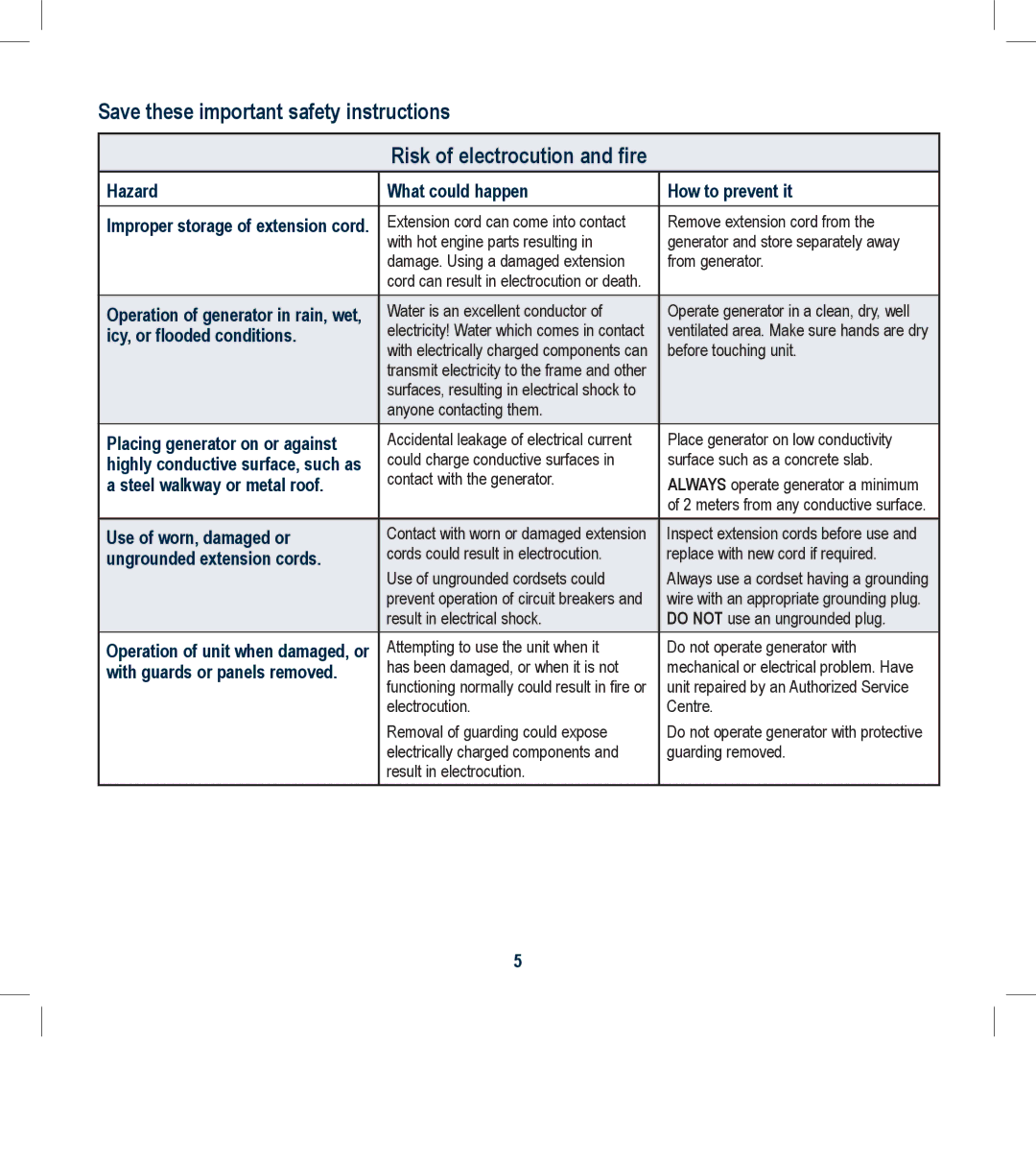
Save these important safety instructions
Risk of electrocution and fire
Hazard | What could happen | How to prevent it |
|
|
|
Improper storage of extension cord. | Extension cord can come into contact | Remove extension cord from the |
| with hot engine parts resulting in | generator and store separately away |
| damage. Using a damaged extension | from generator. |
| cord can result in electrocution or death. |
|
|
|
|
Operation of generator in rain, wet, | Water is an excellent conductor of | Operate generator in a clean, dry, well |
icy, or flooded conditions. | electricity! Water which comes in contact | ventilated area. Make sure hands are dry |
| with electrically charged components can | before touching unit. |
| transmit electricity to the frame and other |
|
| surfaces, resulting in electrical shock to |
|
| anyone contacting them. |
|
|
|
|
Placing generator on or against | Accidental leakage of electrical current | Place generator on low conductivity |
highly conductive surface, such as | could charge conductive surfaces in | surface such as a concrete slab. |
a steel walkway or metal roof. | contact with the generator. | ALWAYS operate generator a minimum |
| ||
|
| of 2 meters from any conductive surface. |
|
|
|
Use of worn, damaged or | Contact with worn or damaged extension | Inspect extension cords before use and |
ungrounded extension cords. | cords could result in electrocution. | replace with new cord if required. |
| Use of ungrounded cordsets could | Always use a cordset having a grounding |
| prevent operation of circuit breakers and | wire with an appropriate grounding plug. |
| result in electrical shock. | DO NOT use an ungrounded plug. |
|
|
|
Operation of unit when damaged, or | Attempting to use the unit when it | Do not operate generator with |
with guards or panels removed. | has been damaged, or when it is not | mechanical or electrical problem. Have |
| functioning normally could result in fire or | unit repaired by an Authorized Service |
| electrocution. | Centre. |
| Removal of guarding could expose | Do not operate generator with protective |
| electrically charged components and | guarding removed. |
| result in electrocution. |
|
|
|
|
5
